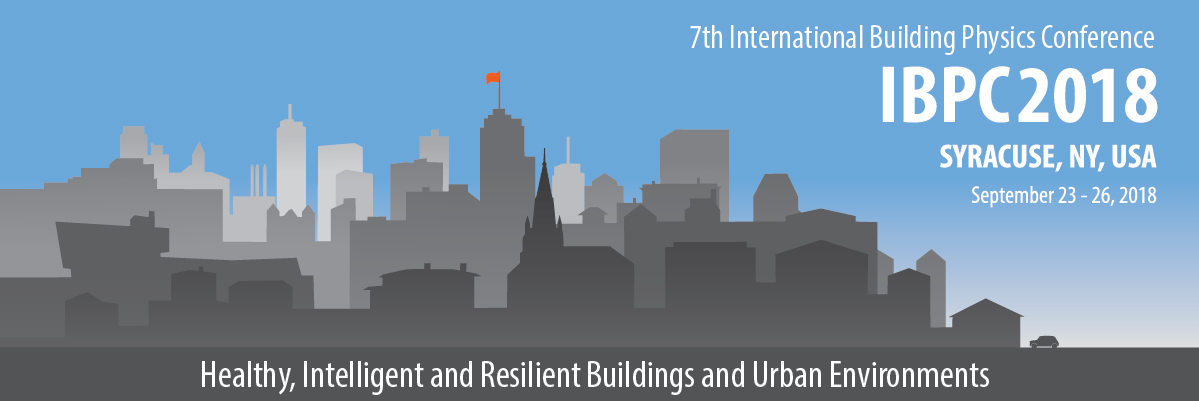PhD candidates Chenlu Zhang (left) and Zhiang Zhang (right) and Professor Khee Poh Lam (center), received an Outstanding Paper Award at the 7th International Building Physics Conference (IBPC).
PhD candidates Zhiang Zhang and Chenlu Zhang, and Professor Khee Poh Lam, recently received an Outstanding Paper Award at the 7th International Building Physics Conference (IBPC) for their paper entitled “A Deep Reinforcement Learning Method for Model-based Optimal Control of HVAC Systems.” Their research paper was one of only six papers to receive an award out of the roughly 200 peer-reviewed accepted papers at the conference.
The event, which took place September 23-26, 2018 in Syracuse, New York, also featured Professor Vivian Loftness delivering a keynote presentation entitled “Intelligent Buildings for Resiliency, Health and Productivity.”
Congratulations to the School of Architecture team and the other honorees for these outstanding accomplishments.
Paper Abstract
Model-based optimal control (MOC) methods have strong potential to improve the energy efficiency of heating, ventilation and air conditioning (HVAC) system. However, most existing MOC methods require a low-order building model, which significantly limits the practicability of such methods. This study develops a novel model-based optimal control method for HVAC supervisory-level control based on the recently-proposed deep reinforcement learning (DRL) framework. The control method can directly use whole building energy model, a widely used flexible building modelling method, as the model and train an optimal control policy using DRL. By integrating deep learning models, the proposed control method can directly take the easily-measurable parameters, such as weather conditions and indoor environment conditions, as the input and controls the easily-controllable supervisory-level control points of HVAC systems. The proposed method is tested in an office building to control its radiant heating system. It is found that a dynamic optimal control policy can be successfully developed, and better heating energy efficiency can be achieved while maintaining the acceptable indoor thermal comfort. However, the “delayed reward problem” is found, which indicates the future work should firstly focus on the effective optimization of the deep reinforcement learning. Download paper here.
About the IBPC
The IBPC is the conference of the International Association of Building Physics and takes place every 3 years; IBPC2018 was the first time the event was held in the United States. IBPC brings together researchers, scientists, architects, engineers, and businesses involved in building physics to present original research and findings, demonstrate and exhibit innovative green building technologies, and discuss future challenges and opportunities. The conference seeks to advance the collective understanding of the nature and behavior of the cyber-physical systems in these different scales, how they interact, and what can be done to optimize their design and operation for healthy, intelligent, and resilient buildings and urban environments.


